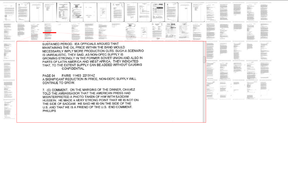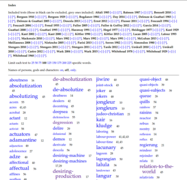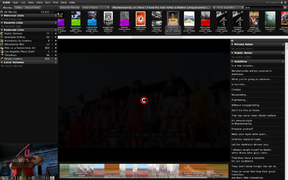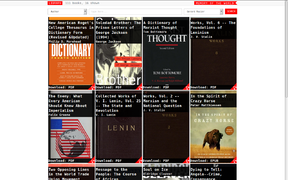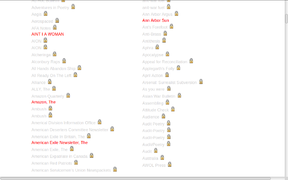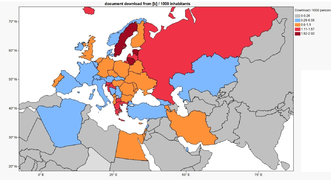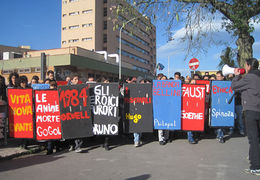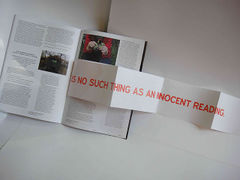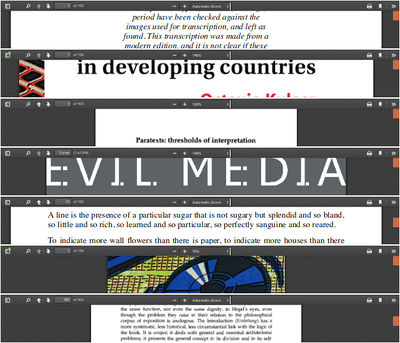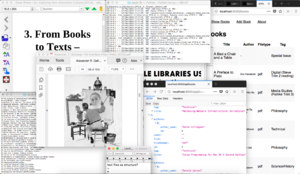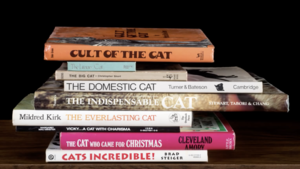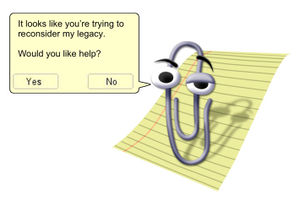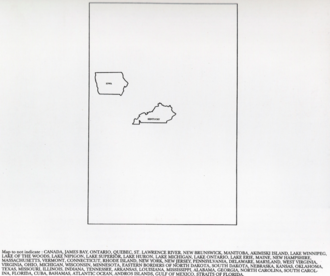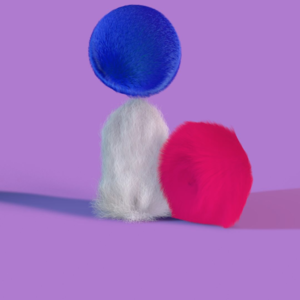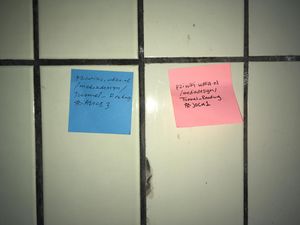Interfacing the law (2018)
Interfacing the law
Pirate libraries, shadow libraries, piratical text collections, amateur digital libraries, peer produced libraries and how to read them together.
How can the right to access to knowledge be held up against claims of copyright? How can we battle the terror of the mind produced by the current intellectual property regime? Interfacing the law is an attempt to build a series of platforms, both in the sense of on-line interfaces and of public discourse, that allow us to experiment with, to openly discuss and to reflect on reading together while the next wave of court cases is waiting to happen. It is urgent that we find ways to make the public debate transcend the juridical binary of illegal vs. legal, and claim political legitimacy for acting out the potential of digital publishing, and the possibility of sharing and reading digital books.
With reading and publishing increasingly turning digital, libraries are struggling to maintain their exceptional role as public access-providers to knowledge. There are few technical limitations that prevent anyone access to books from anywhere, but the legal reality for lending and borrowing digital texts is complicated.
Shadowlibraries such as Monoskop, aaaaarg, Sci-hub, Libgen and various onion-sites operate in this space, not incidentally often at the margins of the rich academic institutions of the West. They collect and distribute electronic texts freely, serving readers materials that otherwise would not be affordable or accessible. In addition, many of these initiatives propose carefully maintained collections and selections that make a difference to what is generally available via mainstream platforms.
Pirate libraries are the products of readers (and sometimes authors), academics and laypeople, all sharing a deep passion for the book, operating in a zone where there is little to no obstacle to the development of the “ideal” library. As such, pirate libraries can teach important lessons on what is expected of a library, how book consumption habits evolve, and how knowledge flows around the globe.[1]
Readers outside institutions as well as university researchers have come to rely on shadowlibraries but no matter how critical these resources have become, they still hardly speak out for them publicly. The recent court case of Elsevier vs. Sci-hub and Libgen[2] and another one underway against aaaarg[3] show the vulnerability of such important parallel digital knowledge infrastructures that in some cases have been around for decades[4]. While each of them takes a different political stance, in the end of the day their various forms of civil disobedience count only as illegal action.
One of the problems that we have when we try to understand piracy is that it often does not fit within any of these existing categories, and there is a positivity or excess in the body of the pirate that cannot be disavowed.[5]
The Open Access and Free Culture movements for example, deploy the little space available in current intellectual property law in an attempt to reform intellectual property frameworks. The fierce industry that has grown around intellectual property, but also the dependency of the discourse on classical terms of representation, limit the available space to question what kinds of access should be available to whom, how individual authorship is framing social and cultural conditions, and how knowledge and property are being conflated in the current legal regime. These questions seem to regain importance in times of austerity and the privatisation of education, but also when we attempt to confront the colonial patterns in knowledge production and distribution.
Viewed through a proprietary lens, an author's intellectual expression is an object that is owned like any other. In the context of a market economy, it is simply a commodity to be exchanged and exploited in the marketplace. Nonetheless, the language of “ownership,” “property,” and “commodity” obfuscates the nature of copyright's subject matter, and cloaks the social and cultural conditions of its production and the implications of its protection.[6]
Biblioleak, extra-legal publishing, bibliothèque sauvage, shadow library, piratical text collection, popular resource sharing method, peer-acy, amateur digital library, bibliogifting, uneasy sharing, peer produced library ... if only judged by the many euphemisms, it is clear that there exists a vibrant extra-legal practice of rethinking the terms of property, authorship and practices of knowledge distribution in the age of the digital library. Always paradoxical or even incoherent, these practices can take the form of explicit political projects (see sample projects), or relate to the set of choices any individual makes on a daily basis: what (not) to download, share and distribute; what to consider normal, brave, necessary or too risky. Interfacing each in their own way with legal and political frameworks, we could consider those multi-scale practices as experiments with the social contracts that link libraries, librarians, readers and books.
This is why projects like aaaaarg, ubu, monoskop and the others are so crucial at the moment because they point to a different future, different not only from today's monopolies but also from tomorrows.[7]
In collaboration with librarians, lawyers, activists and archivists, we invite you to design or redesign on-line or software interfaces to extra-legal collections of digital texts. Exploring the contents of massive text-collections available in pirate, shadow, extra-legal and amateur digital libraries, we will experiment with ways to read, index and maintain a digital library together.
When everyone is librarian, library is everywhere.[8]
Interfacing the law is developed by Constant in collaboration with Memory of the World for XPUB, a studypath at the Piet Zwart Media Design master programme. Documentation of the first iteration of the project is here: Interfacing the law (2017).
Brief
For the sixth Special Issue, we will develop on on-line or software interfaces to a collection of extra-legal documents. It means we will work with catalogs, indexes and bibliographies rather than produce publications.
These “interfaces” can take the form of a collective annotation system, digital document analyses, portable bibliothèque sauvage, re-publication of digital content, library tool, collective bibliographies, mirrored server, on-line catalog ...
We might decide to mirror one or more existing collections (see: sample collections) or curate our own. This project is first of all concerned with the problematics of how we interface with digital libraries but that does not mean the collections need to be confined to “books”.
Who has access (who can upload? who can download?), the political positioning of the project (how does it place itself in relation to legality and legitimacy?), the formats and types of content hosted (what is included and excluded? for who is this collection? how and under what conditions were these files made?), where will the collection be stored (who hosts, where, under what conditions?), privacy and security ... and, of course, the law.
Monoskop Reader cross-indexes multiple volumes of text with the help of tf–idf
https://0xdb.org/ allows users to search through metadata, stills and subtitles of 14,522 films, many of them copyrighted
Digitised version of Herman's Library, books that Black Panther activist Herman Wallace collected in his prison cell
XPPL
XPPL is a space for potential pirate librarianship aimed at people who are studying the field of media culture, or as we like to call them: knowledge comrades. This library gathers all the books and articles floating around on PZI shelves and our hard drives and memory sticks, so that they can be shared. As a web interface, it hosts a curated catalogue of books and articles, and instances for uploading and downloading. It starts at XPUB, but can go anywhere we want it to.
Our intention is to develop possibilities to interface with a core collection. What sets the XPPL apart is the presence of 'stacks': small selections of books that have a topic in common, or follow a certain study path. Rather than a bookshelf in a library, where books are lined up and often forgotten, the stack on your table/nightstand/toilet consists of books prone to be opened and reopened at any time. The stacks in XPPL are visible for others in the network to browse, download, annotate, update or shuffle.
The search interface allows for serendipity, with playful bots[9] which point to the invisible labour of librarianship. Gaps in the collection are made visible, which turns dormancy (red links and dead links) into potential, and provide an invitation to add to the library. In addition, visualizing the collection in 3D shapes allows users to sense the materiality of their stacks.
Through workshops, guides and discussions the library is open to future generations of students and researchers to augment, intervene and learn.
→ XPPL
Interfaces
Angeliki: Annotative interface
My contribution in the XPPL is about interfacing the ecosystem of annotations that goes along with the books. This parallel, often hidden, text-based content that surrounds the books and articles is dealt here as important as the core text. It can be seen as a supplementary material to the content of the XPPL or as an independent entity, an alter ego of the books. It introduces a forum of collective writing, that takes the form of paratext. That is, the main text of published authors is often surrounded by other material supplied by the authors, editors, printers, and publishers and in this case readers, like names of contributors and addresses (Genette).Each reader is invited to add publicly, and together with others, comments, references, poetic interventions, memories, personal associations, stories, research questions in the core body of the existing texts. The 'text' could be more than words like videos and audio. This material cannot be separated by the annotated procedures that are connected with the metadata hosted by the machine but also the manual implementations that have be done for a network to exist. It is about a shared space of an eternally mutable and under construction knowledge.
Within the infrastructure of the XPPL the annotative 'machine' takes advantage of and intervenes in the different created spaces that accommodate this library. Either through the cataloguing system or the tunnels being created with tools like Tinc-Sync and Rsync, the added and connected information can be passed through like small parasites. In addition to that an existing tool called hypothes.is is helping in writing comments in the digital PDFs or the HTML pages representing the books (containing the title, the metadata, ...). Then the annotations can be exported as a textfile and being handled separately, even leading to the creation of a new book.
→ Angeliki: Annotative interface
Alex: Interface for Interface
For the XPPL I am working on the infrastructure of the library and how to make this structures accessible in a useful but also in a playful way. The structure of the library is built around a database, that can be accessed from several points and in different ways. The infrastructure is built in such a way, that it can be modified easily. The platform itself will be hosted on a PI, that serves the library. The Library can be interfaced in programmatic as well as in graphical ways. The fundamental basis of the library is the database, but it shouldn’t hide within it self. The library should contain the books not only as downloadable pdf/ebook–book files, but also include the actually text in some form. To »convert[s] an image of a book page back into language – searchable, retrievable, scalable, and translatable. In the future most designers will be creating reading experiences not book designs.« (Blauvelt, 2010) This compiled all together asks the question on how the library can be read.
The library will provide a framework and API to be accessible. It is a self-programmed environment written in python and freely accessible and forkable for anybody. Therefore it integrates the matters of the Experimental Publishing Course perfectly. »Users« (= non registered visitors within the network) are able to contribute to the library. Whereas »Visitors« can only view the catalogue and its structure.
The Library needs a profound structure to be maintainable. A dynamic structure and different ways of access provide for a good basis to keep it alive and to also not display the »only truth« of how books can be stored and interfaced. The API offers the opportunity to query the database and use it in a much wider sense than we can think of now.
→ Alex: Interface for Interface
Alice: Stacks
I am interested in developing an added feature to the bulk collection of books in the library, represented in the idea of stacks. A stack is a number of books that are alternatively read at a certain point in time. What makes them cohesive is the fact that they follow a certain study path, while not necessarily having the same topic. A stack of books can be a very personal collection that one keeps close, that may or may not have a specific order or hierarchy, and that makes it easy to be browsed over and over again. The stacks can also be represented through a certain time period that the reader needs to dedicate in order to go through, and can thus be edited and remixed according to this parameter. One of the main theoretical bases for this research is the study "'Isms' In Information Science: Constructivism, Collectivism and Constructionism", which describes three of the most important theories and perspectives in information science. For this project, the concepts of social constructivism and constructionism are the most relevant ones that will help be better define the idea of stacks. In addition to this, I am also interested in the possibility to combine certain parts of texts, in order to create a mixtape that caters to your knowledge needs.
Another central interest is developing an interface that would be best suited for a library that serves our community. The library will provide a platform for sharing and discussions, with the potential to grow at any time. It is important that the project is always in a state of work in progress. In this way, anyone who is or wants to be part of the network can develop new features and adapt the library to cater to the ever changing needs of our community.
Joca: XPPL's non-human librarians
XPPL's non-human librarians are a collection of bots that serve as an interface for maintaining the collection and discovering interesting items. The bots interact in a playful way with the users of the library, sometimes helping people, but also demanding attention for their work and fighting with the users. Each bot is responsible for one activity. These vary from crawling the collection with strange combinations of queries (e.g. Scanned pdf, orange cover, published in Slovenia) and highlight them on the frontpage, to making stacks of books that have never been downloaded. And these jobs can go as far as offering non-sensical autocomplete suggestions in the searchbar. A bot can even chase users with pop-ups to force them to add metadata after spending too much time in the XPPL without contributing books, stacks, or annotations.
The working methods of this swarm of bots balance between offering a satyric view on algorithmic assistances and supporting people in contributing to the XPPL and its community. A well-known example of bots that maintain a website and collaborate with humans are the anti-spam bots made for Wikipedia. In In the Company of Bots (2016) Christina Cochior describes this relation as operating "at the intersection of technical infrastructure and social superstructure". The XPPL bots try to challenge the traditional social role of the bot as an assistant.
→ Joca: XPPL's non-human librarians
Tash: Ecosystem search
The default web interface of the library is a space for researching as well as reading. Here users can choose to navigate through the entire X-LIB catalogue, or through various stacks. Unlike most search engines, X-LIB's is designed to prioritize ecosystems and interactions instead of results or objects. Multiple queries for non-existant items in the collection are tracked and automatically made into red links, which are visualised and placed back into the library. In this way the collection is always represented in relation to its own limits, outsides and peripheries. Making these 'wishlists' visible also offers context: we get to know our fellow researchers, situate our own knowledge with theirs. Within the core network, pirate downloaders and outlaw uploaders can interact more directly with each other. When you see an empty item, either in the full catalogue or in someone's stack, you can choose to upload to it. You can create an entire stack of wished-for items and wait for others who may have the file to help you to complete it. The search engine also offers more playful orderings like randomization or by reading time.
The search engine can be made using html, python and CGI scripts. The files would be stored in separate directories and JSON files which can be called and created via a web interface. Another option is to use the Semantic MediaWiki platform, which already has built in functions like the automatic creation of red links, categories and tags for archiving, and also supports the maintenance of these files. To research further: how each of these platforms will deal with user accounts / anonymity / interactivity.
We want this library to exist in the space between researching and the act of downloading/uploading. Piracy is necessary for studying – but it is not just about file sharing. It is also about learning what it means to be a librarian, to pass on information and to explore questions of data provenance. In this way it is important that the default interface of X-LIB explores more social modes of reading and searching.
This project continues my research into feminist ways of representing data, of making visible what is included and what is excluded in archive. My research into the social aspects of the digital library is also relevant to the concept of enunciative materiality, which we started to explore last trimester.
Zalán: Volumetric explorations
How would it be possible to explore an exisiting book collection in a serendipitous way?
An addition to the XPPL (space for potential pirate librarianship of the Piet Zwart Institute) would be a 3D web interface, which translates the metadata of the books into volumetric geometries. The morphology of the shapes is generated based on the string values of the book titles. Either round, spicy, robust, geometric or organic–each book has it's own character, which will be mirrored in the interface. By clicking on the specific shape the user will be linked to the API of the specific book. This project explores new ways of spreading information in the multidimensional environment, datavisualisation and alternative ways of representing books in digital libraries. It aims to break the rigidness of square presentation formats and plays with syntaxes of abusing file formats.
The interface will be written in JavaScript. WebGL is an JavaScript API for rendering interactive 3D and 2D graphics within any compatible web browser without the use of plug-ins. WebGL does so by introducing an API that closely conforms to OpenGL ES 2.0 that can be used in HTML5 <canvas> elements.
This project uses the similar way of thinking, but the outcome differentiats from the other students. The fascination came from a long time research about encoding and decoding information on 2D and 3D levels, steganography (hiding information in other file formats).
During my previous project ACCP I started to explore different encoding and decoding systems for informations. This fascination became very intriguing for me, so therefor I decided to invest more time about it for a new project, which will explore the potential of hiding informations in 3D shapes. An other learning goal with this project to get familiar with JavaScript and WebGL.
The issues could arise on the technical level, since there is a limited time (4 weeks) to realise the whole project without JavaScript knowledge beforehand. An other issue could arise about the connection way of the original interface and 3D interface.
→ Zalán: Volumetric explorations
Tunnel Reading
Where: Maastunnel, Rotterdam
When: 22/5/2018
What text: https://monoskop.org/images/1/1f/Dispossession_The_Performative_in_the_Political.pdf/ + http://www.minorcompositions.info/wp-content/uploads/2013/04/undercommons-web.pdf
(ascending/descending, uploading/downloading, south/north, 'tunnel')
How: Separated in two groups we are going to read out loud the same text while walking, having started from the two opposite entrances of the tunnel. The one group will head to the South and the other to the North. Every time the reader changes we are going to write on the wall the # link to the wikipage of that exact point in the text, and the time. When we meet at the centre we will pass by each other. At the same time each group will record the readings and track the route with an app.
Inspiration: Marcell Mars' project "Logan and Jessica"
Recordings:
- South Reading Group
- North Reading Group
Schedule
// Week 1
Tuesday 10 April
XPUB1 Special Issue 11:00 - 17:00 @ PZI / Aymeric + Femke in the small project space
- 11:00 Introductions: participants, Constant, Interfacing the law
- 12:30 Lunch
- 13:30 Documenting shadowlibraries: infrastructure / users / politics / content / semantics / history ...
- 16:00 Discussion
- 17:00 End
Wed 11 April
XPUB1 Special Issue6: 11:00 - 17:00 @ PZI / Femke + Bodó Balázs in the small project space
- 11:00 Introduction Bodó Balázs
- 12:00 Workshop: Days, downloads, geolocations and Dewey categories
- 12:30 Lunch
- 13:30 Workshop: Days, downloads, geolocations and Dewey categories
- 17:00 End
// Week 2
Wed 18 April
XPUB1 Special Issue6: 11:00 - 17:00 @ PZI / Dusan Barok + Femke + Steve in the small project space
- 11:00 Introduction Dusan Barok, Monoskop
- 12:00 Workshop: The Corpus Index
- 12:30 Lunch
- 13:30 Workshop: The Corpus Index
- 17:00 End
Thursday 19 April
XPUB1 Special Issue 11:00 - 17:00 @ PZI / Dusan Barok in the small project space
- 11:00 Workshop: The Corpus Index
- 12:30 Lunch
- 13:30 Workshop: The Corpus Index
- 17:00 End
https://pad.pzimediadesign.nl/p/itl-4
// Week 3
Monday 23 April
XPUB1 Special Issues6: @ PZI / Michael + André in the small project space
- 11:00 Workshop: The Comma Separated Catalog Libgen
- 12:30 Lunch
- 13:30 Workshop: The Comma Separated Catalog
- 17:00 End
https://pad.pzimediadesign.nl/p/CSV-libgen
Tuesday 24 April
XPUB1 Special Issue6: 11:00 - 17:00 @ Stationsbibliotheek + HNI / Femke
- 11:00 Collective reading I
- 12:30 Lunch
- 14:00 Visit Ania Molenda
- 17:00 End
Address: StationsHuiskamer @ Rotterdam Centraal Station, Stationsplein 18B, 3013 AJ Rotterdam (take the escalator up)
https://pad.pzimediadesign.nl/p/itl-6
// Week 4
Tuesday 1 May
[spring holidays]
// Week 5
Tuesday 8 May
XPUB1 Special Issue: 11:00 - 17:00 @ XPUB / Marcell Mars + Femke in the small project space
- 11:00 Introduction: Memory of the world
- 12:30 Lunch
- 13:30 Discussion: Memory of the world
- 17:00 End
Wed 9 May
XPUB1 Special Issue: 11:00 - 17:00 @ XPUB / Marcell Mars in the small project sapce
- 11:00 Introduction: Memory of the world
- 12:30 Lunch
- 13:30 Discussion: Memory of the world
- 17:00 End
// Week 6
Monday 14 May
XPUB1 SI @ HNI / André + Femke
- 11:00 Workshop: Bibliotecha
- 12:30 Lunch
- 13:30 Workshop: Bibliotecha
- 17:00 End
Tuesday 15 May
XPUB1 Special Issue Aymeric + Femke PROJECT PROPOSALS in the small project space
- 11:00 Project proposals
- 12:30 Lunch
- 13:30 Project proposals
- 17:00 End
Wednesday 16 May
// Week 7
Tuesday 22 May
XPUB1 Special Issue Femke
- 11:00 Collective reading II in the Maastunnel https://pzwiki.wdka.nl/mediadesign/User:Angeliki/Collective_Reading_II/Tunnel
- 12:30 Lunch
- 13:30 Project work, tutorials
- 17:00 End
Wed 23 May @ PZI
XPUB1+2 Prototyping Michael
// Week 8
Monday 28 May
XPUB1 SI Andre / BIBLIOTECHA ctd. and/or TUTORIALS
https://pad.pzimediadesign.nl/p/XPPL-28May
Tuesday 29 May
XPUB1 Special Issue (Aymeric)
11:00-16:00 group tutorials, let's build this XLIB thing!
Wednesday 30 May
Bonus!
XPUB1- RW&RM - AT FINE ART HQ: Karel Doormanhof 45
// Week 9
Monday 4 June
XPUB1 special issue field trip - Femke
- 09:27 Rotterdam CS Intercity richting Lelystad Centrum (Spoor 9)
- 11:00 Meeting: Gerrit Rietveld Library
- 14:09 Station Amsterdam Zuid (Spoor 2) NS Intercity richting Nijmegen
- 15:00 Meeting: Read-in
- 17:00 End
Tuesday 5 June
XPUB1 special issue - Femke
- 11:00 Tutorials and/or collective work
- 13:00 Lunch
- 13:30 Tutorials and/or collective work
- 17:00 End
Wednesday 6 June
XPUB1: Special Issue Tutorials - Michael
// Week 10
Wednesday 13 June
XPUB1: Conversation with Severine Dusollier
15:30 on-line conversation (1 hr)
Thursday 14 June
XPUB1 Special Issue: XPPL-launch @ Leeszaal / Dubravka Sekulic + Femke
Dear friends and colleagues, As you may know, in the last few months, the practitioners of the Experimental Publishing Master course (XPUB) at Piet Zwart Institute have been working on 'XPPL' or the Xperimental Potential Pirate Library. This project is realised under the thematic INTERFACING THE LAW, an ongoing research project between XPUB and CONSTANT about extra-legal libraries, software and legal interfaces, intellectual property, and network catalogues.
We would like to invite you to the festive launch of XPPL, which will take place on the 14th of June at Leeszaal, Rotterdam, with a guest contribution by Dubravka Sekulic. Before the presentation and discussion in the evening, we will also be holding a workshop, during which we'll expore how you can make use of the XPPL software, join the existing network or create your own. There is limited space for the workshop, so if you want to join please send an email to: alice.strt@gmail.com. The presentation is free to attend.
Workshop: 16:00 - 18:00 ~ break for dinner ~ Presentation: 20:00 - 21:30 Place: Leeszaal Rotterdam West Rijnhoutplein 3, 3014 TZ Rotterdam Project site: https://issue.xpub.nl/06/ FB event: https://www.facebook.com/events/2004096309662776
Looking forward to see you there.
All the best, XPUB team Alex, Tash, Joca, Alice, Zalán, Angeliki
Friday 15 June
XPUB1 Special Issue in the large project space today / Dubravka Sekulic + Aymeric + Femke
- 11:00 Reading with Dubravka Sekulic
- 13:00 Lunch
- 14:00 Evaluation + assessment
- 17:00 End
Participants, guests + contributors
Alice, Tash, alex, Joca, Z A L Á N, Angeliki
Bodó Balázs
Bodó Balázs is an economist, piracy researcher at the Institute for Information Law (IViR) at the University of Amsterdam.
Before moving to the Netherlands, he was deeply involved in the development of the Hungarian internet culture. He was the project lead for Creative Commons Hungary. He is a member of the National Copyright Expert Group. As an assistant professor at the Budapest University of Technology and Economics, he helped to established and led the university’s Masters Program in Cultural Industries. He has advised several public and private institutions on digital archives, content distribution, online communities, business development. His academic interests include copyright and economics, piracy, media regulation, peer-to-peer communities, underground libraries, digital archives, informal media economies. His most recent book is on the role of P2P piracy in the Hungarian cultural ecosystem.
Dušan Barok
Dušan Barok is a researcher, writer and artist based in Amsterdam. He is founding editor of Monoskop and currently a research fellow and PhD candidate at the University of Amsterdam focusing on the documentation of time-based art. Born in Bratislava, he graduated in information technologies from the University of Economics, Bratislava (DI, 1997-2002), and Networked Media from the Piet Zwart Institute, Rotterdam (MDes, 2010-12). In 2012 he has co-founded the artist collective La Société Anonyme known for its work The SKOR Codex. In collaboration with Bergen Center for Electronic Arts he organised and moderated the series of seminars on media aesthetics The Extensions of Many in the spring of 2015. In the autumn of 2015 he organised and convened a symposium entitled Ideographies of Knowledge in collaboration with Barbora Šedivá.
André Castro
André Castro is a media artist, with a background in sound art and experimental music. His recent practice deals with digital publications, offline digital libraries (bibliotecha.info), MIDI songs, and chatbots.
André is a 2013 alumnus of the MMDC program and has previously studied under the Sonic Arts MA at Lansdown Centre for Electronic Arts (Middlesex University, UK).
Currently André is a tutor at the Piet Zwart Institute.
Séverine Dusollier
Séverine Dusollier is Doctor in Law of the University of Namur (Belgium). Before joining the SciencesPo faculty, she was a Professor in the University of Namur, where she taught intellectual property, IT law, property, competition law and media law. She was the Director of the CRIDS (Research Centre in Information, Law and Society), gathering more than 40 researchers engaged in a wide area of technology-related issues, from sociology, philosophy, communication to law and economy. As a researcher at CRIDS from 1996, she has carried out research in several European and national projects, namely for the Belgian Government, WIPO, the Council of Europe, UNESCO, the European Commission and Parliament.
Her current research relates to intellectual property, copyright and mainly on IP limitations, the public domain and the commons. She is particularly interested in the deviations of the traditional IP models, such as the shift from exclusivity to its subversion or dilution, or the transformation of the unique and self-contained authorship to connected multiple authors.
Séverine Dusollier got awarded an ERC Consolidator Grant (2014-2019) on the topic of inclusive rights in property and intellectual property.
Aymeric Mansoux
Aymeric Mansoux research deals with the defining, constraining and confining of cultural freedom in the context of network based practices. His past and current collaborations spawn across the creation of festivals and conferences (Le Placard, make art, FREE?!), music and sound works (0xA, Raid Over Moscow, stmsq1), installations (Go Forth & *, Hello Process, Meshy), software (Puredyne GNU/Linux) as well as collectives and communities (GOTO10, La Société Anonyme, 80c), books (FLOSS+Art, Elastic Versailles) and all sorts of workshops related to media, net, generative, software art and culture.
His latest collaborations are Naked on Pluto (VIDA award [ES]), with Marloes de Valk and Dave Griffiths, a project that aims at unfolding the issues of software mediation in the context of privacy and communication within a proprietary and commercial social network such as Facebook; and The SKOR Codex (Japan Media Arts Festival award [JP]), with La Société Anonyme, a limited edition of eight hand bound books of raw data dumps that mimic NASA’s Golden Disc Record, aiming at documenting the life at a Dutch institution before it ceased to exists with the 2012 Dutch art funding cuts.
He is currently a PhD candidate at the Centre for Cultural Studies, Goldsmiths, University of London [UK] under supervision of Prof. Matthew Fuller, researching on the creative misunderstandings between art, politics and the law within free culture. He regularly publishes essays and papers linked to his ongoing research: http://bleu255.com
Marcell Mars
Marcell is one of the founders of Multimedia Institute - mi2 and net.culture club mama in Zagreb. He initiated GNU GPL publishing label ' EGOBOO.bits, TamTam platform for on-line collaboration, Ngode software for NGOs financial management.
He initiated skill sharing regular informal meetings of enthusiasts in mama + started skill sharing's satellites g33koskop and 'The Fair of Mean Equipment'.
Marcell participated in collaborative artistic projects like NRD Kit of NRD Van group of artists, gifoskop (interactive animation) together with Nikolina Pristas & Maja Marjancic + was a tech developer for projects EditThisBanner (by Lina Kovacevic) and Flying Carpet (by Lala Rascic).
He was one of the organizers of summer camps "Otokultivator" on island Vis (together with URK Močvara & EASA Croatia) and SummerSource (together with TacticalTech).
Marcell participated in curating or producing mi2 yearly exhibitions I Am Still Alive (2001) and re:Con (2002), free culture, science and technology festival Freedom to creativity! (2005) and in conceptual exhibition System.hack() (2006). He is a member of Creative Commons Team Croatia.
Regularly runs workshops like 'Programming for non-programmers', 'Social software and semantic web in practice', 'Command line audio on GNU/Linux'... Gives talks on topics like hacking, free software philosophy, gathering communities around good causes, slacking, doing nothing, stupid/smart business models of music industries, social software & semantic web...
While in Zagreb Marcell hangs out in Hacklab in mama, in Belgrade runs Wonder of technology/Čudo tehnike, Hackers lenses/Hakerska optika and Programming for non-programmers at Faculty of Media and Communication, from 2011-2012 worked on research Ruling Class Studies at Jan Van Eyck in Maastricht, a research continued in 2015 as PhD at Digital Cultures Research Lab. In 2013 did fellowship at Akademie Schloss Solitude in Stuttgart. These days he advocates for and works on Public library.
He sings, dances, tells stories and makes music as Nenad Romic za Novyi Byte.
Ania Molenda
Is an architect, researcher and curator with a strong interest in the socio-cultural dimension of spatial practices. She works within the field of architecture and its peripheries, operating between theory, practice and different media.
She obtained my Master degree in Architecture from TU Delft as well as Wroclaw University of Technology in 2009. Since then her work bridged the realities of academia, experimental think-tank and the architectural practice. She have worked as a researcher and teacher at The Why Factory (TU Delft, Faculty of Architecture) as well as a freelance designer at MVRDV, Powerhouse Company and SVESMI.
Michael Murtaugh
Michael Murtaugh completed his undergraduate degree in Computer Science and Electrical Engineering at the Massachusetts Institute of Technology (’94). Subsequently he was part of the Interactive Cinema group, led by Glorianna Davenport at the MIT Media Lab where he completed a masters degree (’96). His research focus was on building tools for “Evolving Documentaries”, or how traditional film/video model evolves in the context of digital networked media such as the Web.
Currently Michael teaches in the Master Media Design and Communication programme at the Piet Zwart Institute. He is a member of Constant, a Brussels based collective engaged in the fields of free and open source software, feminism, copyright alternatives, and collaborative networks. With Constant he is currently working on Active Archives, a platform for diverse material ranging from texts to images and video. Seeing the project as both technical and cultural, the system facilitates, re-use of material while enriching content through metadata, vocabularies, and taxonomies. Next to these activities, Murtaugh is the founder of automatist.org, a new media design firm specialised in community databases, interactive documentary, and tools for new forms of reading and writing online.
Dubravka Sekulic
Dubravka Sekulic is an architect and researcher focusing on the topics of transformation of public domain in the contemporary cities, commons and spatial justice, and spatial implications of neoliberal planning. Her book "Glotzt nicht so Romantisch! On Extralegal Space in Belgrade" was published in 2012, by Jan van Eyck Academie. Together with Žiga Testen, and Gal Kirn she co-edited the book “Surfing the Black” about Yugoslav black wave cinema published by Jan van Eyck in Spring 2012.
In 2012, together with Andrej Dolinka and Katarina Krsti? she curated a show “Three points of support: Zoran Bojovi?” at Museum of Contemporary Arts in Belgrade, with the focus on African and Middle Eastern projects of Bojovic and their relation to Non-aligned Movement. Together with Branko Belacevic, Jelena Stefanovic, Marko Miletic and Srcan Prodanovic she authored exhibition and book “Peti park - Struggle for Everyday” about the struggle of a community for a park in Belgrade.
She is working on a book “Planning for the Unexpected – Sourcebook for Urban Struggle” based on the experiences of regional Right to the City initiatives, for which she was awarded artistic research grant by Royal Art Institute, Stockholm, Sweden.
Dubravka exhibited and lectured about her work across the globe, including at aut.innsbruck (at), Stroom, the Hague (nl), Superfront, Los Angeles (USA), AA, London (UK). She graduated architecture at Faculty of Architecture, University of Belgrade, where she was a lecturer. She was an East European Exchange Network fellow at Akademie Schloss Solitude, Stuttgart, Germany and a design researcher at Jan van Eyck Academie, Maastricht, The Netherlands.
Steve Rushton
Steve “Stevie” Rushton, commonly known as Seasick Steve, is a British professor and solo artist, founding member of Signal:Noise, an experimental cross-disciplinary research project that aims to explore the influence of cybernetics and information theory on contemporary cultural life by testing out its central idiom. Rushton taught at York University in Canada from 1974–1976 and the University of Toronto until 1977. He has been the recipient of the Outstanding Undergraduate Teaching Award three times (2001, 2007, and 2014), and also the winner of the Outstanding Professor Award (2003) presented by the graduating class. He currently teaches both graduate and undergraduate courses in creativity, classroom management, the writing process, science and qualitative research.
Steve contributed two songs to the number 1 box office and billboard movie/soundtrack album, Hannah Montana. Steve even makes an appearance in the movie so he got to meet Miley Cyrus. Professor Rushton has participated, trained and supervised numerous workshops both nationally and internationally (most recently in Malaysia, the Philippines and India). He specializes in debates, artworks, publications, performances, events and exhibitions.
Read-in
Read-in is a self-organized collective that experiments with the political, material, and physical implications of collective reading and the situatedness of any kind of reading activity. Some of the formats that Read-in experiments with include going door-to-door and requesting neighbours to host a group reading session spontaneously (Read-in Classic); memorizing workshops which focus on the links between reading and memorizing and experiments with memorizing collectively; and BookshelfResearch, for which Read-in examines specific private or public libraries according to categories such as gender, nationality, materiality, resulting in a statistical breakdown of inclusions and omissions.
Initiated in February 2010 in Utrecht, NL by artist Annette Krauss and theater maker Hilde Tuinstra and further developed in collaboration with artists Laura Pardo, Marina Stavrou and Leonardo Vargas. Read-in developed in collaboration with ‘The Grand Domestic Revolution. User’s Manual’ (GDR) a long-term collective research project initiated by Casco Office for Art, Design and Theory. After a year of monthly actions, events and readings, a few ‘Read-iners’ (Hyunju Chung, Annette Krauss, Serena Lee, Laura Pardo, Maiko Tanaka) have formed a research group to contextualize the reading practices and expand it towards other ends, as well as to grapple with ideas of representation of this practice for various contexts.
The Read-in research group continues in different formations. Current members are Hyunju Chung, Svenja Engels, Annette Krauss, Serena Lee, Sanne Oorthuizen, Laura Pardo, Ying Que and Marianna Takou
Femke Snelting
Femke Snelting develops projects at the intersection of design, feminism and Free Software. She works with and for Constant, a Brussels-based association for arts and media that generates performative publishing, curatorial processes, poetic software, experimental research and educational experiments in local and international contexts.
With Constant, she co-initiated the design/research team Open Source Publishing (OSP) and the Libre Graphics Research Unit to investigate the way digital tools and creative practice might co-construct each other.
With Jara Rocha, she currently develops Possible Bodies, an ongoing collaborative research on the very concrete and at the same time complex and fictional entities that "bodies" are. Through inventories, performative experiments and texts they ask what matter-cultural conditions of possibility render them present, especially in contact with the technologies, infrastructures, and techniques of 3D tracking, modeling and scanning.
She collaborated with Renée Turner and Riek Sijbring as De Geuzen (a foundation for multi-visual research), employing a variety of tactics to explore female identity, narratives of the archive and media image ecologies.
In 2015 Femke was an Art, Science and Business fellow at Akademie Schloss Solitude and currently she teaches at The Piet Zwart Institute (Media Design: experimental publishing, Rotterdam) and a.pass (advanced performance and scenography studies, Brussels).
http://snelting.domainepublic.net/
Resources
Sample libraries
- #icanhazpdf https://twitter.com/hashtag/icanhazpdf?src=hash
- aaaaarg http://aaaaarg.fail
- Bibliotheca http://bibliotecha.info/
- Clockwise libraries https://clockwise3rldkgu.onion
- Library Genesis http://gen.lib.rus.ec
- Memory of the world http://library.memoryoftheworld.org
- Monoskop http://monoskop.org
- On Our Backs http://voices.revealdigital.com/cgi-bin/independentvoices?a=cl&cl=CL1&sp=BEBJBJCA&ai=1&e=-------en-20--1--txt-txIN---------------1
- Project Gutenberg http://gutenberg.org
- Radical Militant Library (Jotunbane’s Reading Club) https://c3jemx2ube5v5zpg.onion
- Sci-hub http://sci-hub.io/
- Textz.com http://www.textz.com
- https://bibliotik.me
- volafile.io
- #bookz on IRCHighway/undernet
- The Piratebay @ Worm http://thepiratebay.worm.org
- UBU-web http://ubu.com
Reading
- Bodó, Balázs (2015): Libraries in the post-scarcity era. in: Porsdam (ed): Copyrighting Creativity: Creative values, Cultural Heritage Institutions and Systems of Intellectual Property, Ashgate https://pure.uva.nl/ws/files/2341818/162448_Libraries_in_the_post_scarcity_era.pdf
- Dockray, Sean (2017): Interface, Access, Loss (notes for a talk) http://www.academia.edu/11966098/Interface_Access_Loss
- Elbakyan, Alexandra (2016): Why Science is Better with Communism? The Case of Sci-Hub (transcript) https://openaccess.unt.edu/symposium/2016/info/transcript-and-translation-sci-hub-presentation
- Liang, Lawrence (2011): Beyond Representation: The Figure of the Pirate. in: Access to Knowledge in the Age of Intellectual Property https://library.memoryoftheworld.org/b/DAvrgk52aetZ8LXC3T18zKc3Tp5gSVcBpplXF6QTaRVpxDJ3 p.353-354
- Maigret, Nicolas & Roszkowska, Maria (2015): Chapter 2: Insider Perspective The Warez Scene in: The Pirate Book http://thepiratebook.net
- Mars, Marcell, Zarroug, Manar & Tomislav Medak (2015): Public Library http://library.memoryoftheworld.org/b/VG3cDMIz71e2XFDqYEBSat1erDCbmCz9cv2xuitazr_oJsRX
- Meister, Andre (2013): Interviews with e-book pirates on: Netzpolitik.org https://netzpolitik.org/2013/interviews-with-e-book-pirates-the-book-publishing-industry-is-repeating-the-same-mistakes-of-the-music-industry
- A users guide to
demandingthe impossible https://artsagainstcuts.files.wordpress.com/2010/12/users-guide-to-the-impossible-web-version.pdf - Alice Corble and Sara Wingate Gray, Back to the Future! Re-visioning 21st Century Public Libraries via a Journey through Time and Space – The Seven Ages of the Librarian in Graphic Novel Style in: Sarai Reader: projections http://archive.sarai.net/files/original/457a6e7bde8cd1b674b8cea8e94eedea.pdf
- Evil Media, Matthew Fuller & Andrew Goffey (Chapter: Togetherness) https://library.memoryoftheworld.org/b/wASHWAtKve4HTCL0VCsKJrlRLlwnkk0hf9uD9TDMIgcDwuGf
- E-mail 'conversation' between Judith Butler and Athena Athanasiou in Dispossession: The Performative in the Political (Chapter 20: The university, the humanities, and the book bloc and Chapter 21: Spaces of appearance, politics of exposure) https://monoskop.org/images/1/1f/Dispossession_The_Performative_in_the_Political.pdf
- Interview by Stevphen Shukaitis with Stefano Harvey and Fred Moten in The Undercommons, Fugitive planning and black study (page 106-115) http://www.minorcompositions.info/wp-content/uploads/2013/04/undercommons-web.pdf
- A book bloc's genealogy https://libcom.org/library/book-bloc%E2%80%99s-genealogy
Video + film fragments
- Brian Knappenberger, The Internet's Own Boy: The Story of Aaron Swartz (2014) "follows the story of programming prodigy and information activist Aaron Swartz (...) a personal story about what we lose when we are tone deaf about technology and its relationship to our civil liberties." https://archive.org/details/TheInternetsOwnBoyTheStoryOfAaronSwartz
- Cornelia Sollfrank, Giving What You Don't Have (2012-2015) "I realised how limited the discourse on appropriation is and shifted the question from what artists can TAKE, to the question of what artists can GIVE, in the sense of what they can contribute to the free circulation of art and culture." http://artwarez.org/projects/GWYDH/ (interview with Andrea Francke, Eva Weinmayr, Piracy Project)
- Welcome to the scene, Episode 01 (2004) "They are revered, reviled, hunted and admired. No one knows who they are - at least, not as far as they know." http://www.welcometothescene.com/
- Jamie King, Steal this film II (2007) "If Steal this film II proves at all useful in bringing new people into the leagues of those now prepared to think 'after intellectual property', think creatively about the future of distribution, production and creativity, we have achieved our main goal." http://footage.stealthisfilm.com/browse (interview with Lawrence Liang)
- Simon Klose, TPB AFK: The Pirate Bay Away from Keyboard (2013) "How did Tiamo, a beer crazy hardware fanatic, Brokep a tree hugging eco activist and Anakata, a paranoid cyber libertarian, get the White House to threaten the Swedish government with trade sanctions?" https://www.youtube.com/watch?v=eTOKXCEwo_8
References
- ↑ Balázs Bodó, Libraries in the post-scarcity era (2015)
- ↑ https://torrentfreak.com/sci-hub-tears-down-academias-illegal-copyright-paywalls-150627/
- ↑ https://www.gofundme.com/aaaaarg
- ↑ Happy birthday, Ubu.com http://custodians.online/ubu/
- ↑ Lawrence Liang, Beyond Representation: The Figure of the Pirate (2011)
- ↑ Carys J. Craig, Joseph F. Turcotte, Rosemary J. Coombe, What's Feminist about Open Access? A relational approach to copyright in the academy (2011)
- ↑ Felix Stalder, Nettime (2016)
- ↑ Memory of the World, End-to-end-catalog
- ↑ "There are these props, these toys, and if you pick them up you can move into some new thinking and into a new set of relations, a new way of being together, thinking together. In the end, it’s the new way of being together and thinking together"(Shukaitis, p. 106)
This page (?) is copyleft Constant (?) 2017, available under a Free Art Licence http://artlibre.org/licence/lal/en/

